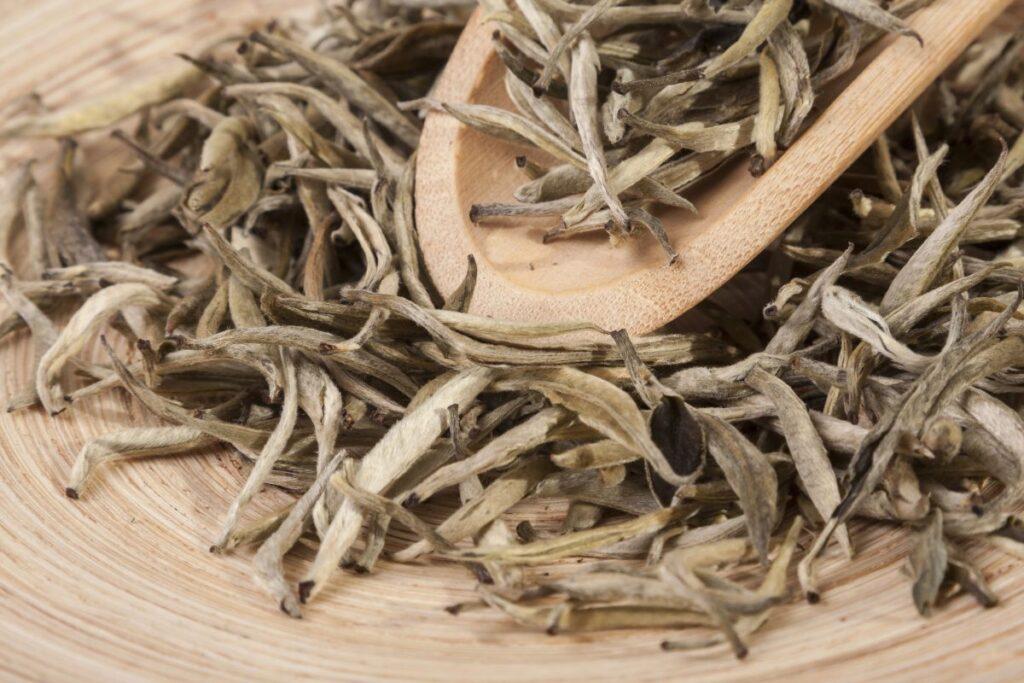White Tea (Slightly Fermented)
White tea is a lightly fermented tea. The leaves are silvery grey and the brew is of a light shimmering yellow. As they undergo very light fermentation white teas retain high levels of catechins. In traditional Chinese medicinal terms, white tea has a “warm” taste with a “cooling” function. It is especially good for to be drunk in summer because it helps to reduce body heat.
The Fujian Province is the hometown of white tea with the counties Fu Ding, Zheng He and Song Xi producing the bulk.
White tea is processed by rapid low temperature drying. It is very lightly fermented, hence retaining more of their natural properties. There is a noticeable difference in taste as most green teas have a distinctive “grassy” taste to them but white tea does not. White tea brews to a pale yellow/ light red colour and has a slightly sweet flavour with no “grassy” undertones sometimes associated with green tea.
White tea is also rich in vitamin C. Recent research indicates white tea has the strongest potential of all teas for fighting cancer, especially colon cancer. Researchers speculate that the processing of tea determines its cancer fighting potential. Because white tea goes through the least amount of processing, it theoretically has the most polyphenols which have been linked to cancer prevention. There is also considerably less caffeine in white tea than the other varieties (15mg per serving, compared to 40mg for black tea, and 20mg for green).
As with all teas, there are many varieties of white tea, such as: white peony, flowery pekoe and Sau Mei. The best white tea contains a higher proportion of buds, which are covered with fine “silvery” hairs.

